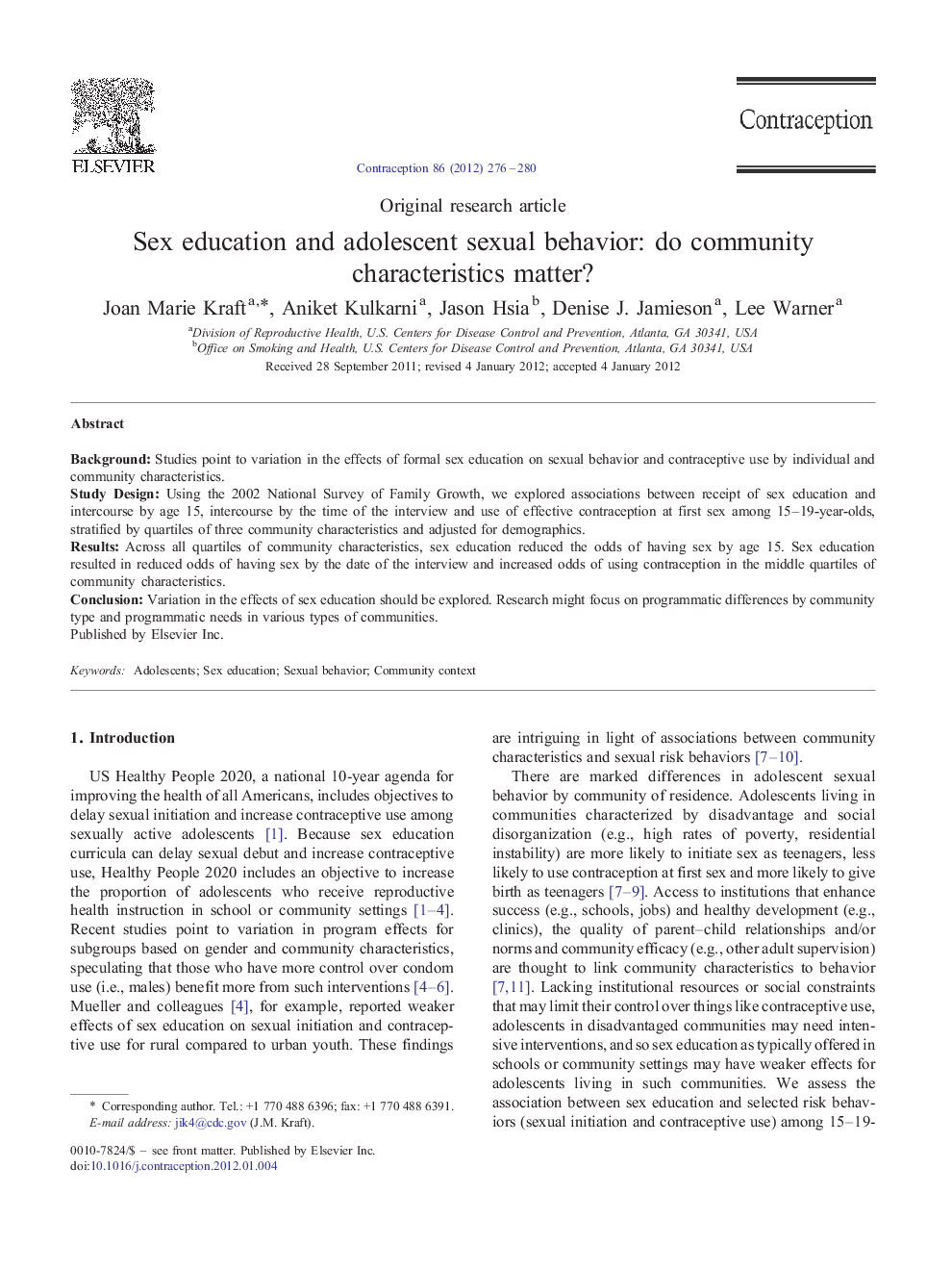| Article ID | Journal | Published Year | Pages | File Type |
|---|---|---|---|---|
| 3913861 | Contraception | 2012 | 5 Pages |
BackgroundStudies point to variation in the effects of formal sex education on sexual behavior and contraceptive use by individual and community characteristics.Study DesignUsing the 2002 National Survey of Family Growth, we explored associations between receipt of sex education and intercourse by age 15, intercourse by the time of the interview and use of effective contraception at first sex among 15–19-year-olds, stratified by quartiles of three community characteristics and adjusted for demographics.ResultsAcross all quartiles of community characteristics, sex education reduced the odds of having sex by age 15. Sex education resulted in reduced odds of having sex by the date of the interview and increased odds of using contraception in the middle quartiles of community characteristics.ConclusionVariation in the effects of sex education should be explored. Research might focus on programmatic differences by community type and programmatic needs in various types of communities.
